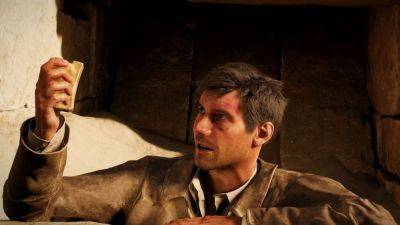OG Baldur's Gate developer outlines the changing face of IP deals: "You have to sell 10 million units just to break even"
Feargus Urquhart, the head of Obsidian Entertainment and developer behind beloved RPGs like the original Baldur's Gate and Fallout, reveals how IP deals have evolved.
Speaking in an interview on the recently launched Hit the Limit Break podcast, Urquhart first looks back on Baldur's Gate and the deal made with BioWare. "I think the initial contract was like $550,000 … we maybe gave them a million, 1.1 million to get it done by the end." The dev continues: "Then the game can go off and sell three, four million units and so the amount we put into development was so much smaller."
Urquhart explains how these numbers meant that the team could "give Wizards of the Coast a licensing fee from unit one - and the money all works." The same wouldn't always apply on larger scales more typical of today's deals, according to the dev. "Now, if you go spend $300 million on a game and you advertise it and all this other kind of stuff, and it's $400 million, and so you've got to sell 10 million units just to break even."
The troubles don't end there in Urquhart's example - "Your licensor wants to make 10 percent on that $400 million before you make any money - yeah, it starts to get into this thing of like, uh yeah, that's kind of scary." As the dev says, when it comes to an IP, "either you believe you're going to sell more units using the IP or you don't." That's not to say that the math can't still work, though, which Urquhart states.
"Let's say it's not Spider-Man. It's just some dude who doesn't have a web, he just shoots other stuff. Does that game sell the same number of units as Spider-Man? Insomniac's awesome, right? But probably not." Urquhart makes a good point here - and I know that I'll certainly be looking at large-scale IP deals and the stress that goes into maintaining numbers behind the scenes differently myself from here on out.
Baldur's Gate 3 dev nearly lost its chance at the D&D license because its previous RPG meant its pitch to Wizards of the Coast was "really







